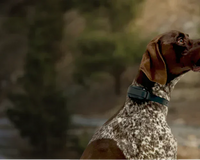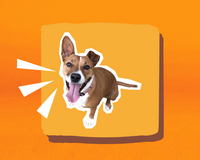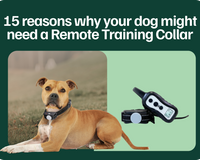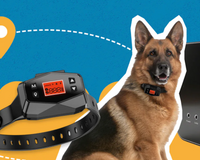Dog and human body language, while appearing similar, should not be directly interpreted. Translating your dog's signals as if they were human may not be effective. Understanding your dog's body language can enhance your communication.
Here are some topics, actions, and solutions to common questions!
My dog always jumps up on me and sometimes strangers, why?
This action can have two meanings, one more affectionate than the other!
Puppies have an instinct to jump up when greeting their mothers for attention and to signal interest in her company, food, or offerings. This leads to excess licking to show affection.
As your dog grows older, jumping may show excitement or affection when you return home, enter a room, or initiate play. The goal of the ‘jump’ is to reach your face, your primary communication tool! Dogs jump close to your face to express happiness and assert themselves. e.g., ‘I am so happy you're finally home, now entertain me and don’t forget I'm here’.
Though generally harmless, we suggest discouraging it. Dogs need to understand that humans are the pack leaders and excessive jumping is not the best way to show affection.
However, if you’re not concerned, neither are they and will continue this form of affection. If your dog does this to strangers or upon meeting someone new, monitor the behaviour! Jumping on unknown people can be a form of dominance, stress, or an attempt to control the situation.
At worst, this jumping may cause confusion about who's in charge.
I've heard mixed things about making eye contact with dogs. Is this okay?
Dogs can understand eye contact in two ways (note a difference between eye contact and staring).
“Science has found another reason for eye contact with dogs: bonding. With your pet, eye contact increases a brain chemical called oxytocin, the same chemical in parent-child bonding. Scientists believe this chemical partly explains how dogs became domesticated. As the owner, you should always be the dominant figure or “pack leader.” A dog who believes they are the master may not obey commands and might become aggressive. There is a difference between maintaining eye contact or staring, and your pet may feel threatened. If uncomfortable, they will turn away, avert their eyes, walk away, or roll over.” - Wag Walking
Should I be concerned about my dog's clingy behaviour?
Clingy behaviour is normal if you spend a lot of time with your dog. They don’t say ‘Man's best friend’ for no reason! Clingy behaviour can be nurtured; however, it should not be encouraged. This can cause distress to your dog if you leave the home or go on holiday without them.
If your dog is elderly, we suggest accommodating their clingy behaviour as a change in routine or your attitude towards them may cause more harm than good.
Dogs' clingy behaviour can stem from various reasons; however, the most common is anxiety of being alone or boredom. If your dog is not socialised or treated as a ‘dog’ in balanced proportions, it can lose its sense of place within the environment.
This feeling can evoke thoughts of ‘If I am not with my owner, I will be bored, lonely, or confused about where I belong’. We suggest introducing your dog to interactive toys if this habit develops or a playmate if possible.
Interactive toys such as dog puzzles, treat dispensers, or scent work toys can be a great introduction to teaching your dog some independence.
Why is my dog always hanging around my feet?
Dogs love smells! What tends to smell… feet! Surprisingly, our feet tend to smell the most like us, and this extends to our shoes and socks. If your dog loves sitting, playing, licking, and leaning on your feet, it can be a sign of wanting to get closer to you and/or to know where you’ve been.
Our feet release certain ‘chemicals’ indicating the types of ground we have walked on and what we have eaten and drunk through our sweat. If your dog drops toys or ‘treats’ at your feet, they are trying to please you and ask for your acceptance!
This behaviour is nothing to be concerned about. If it becomes aggressive or more ‘stubborn’ in nature, you will need to investigate why your dog feels the need to assert dominance towards you!
This is just the tip of the iceberg for dog body language; we could be here for days!
We are passionate about dogs and are here to help with any problems you may need solving. Simply head back to our shop pages or give us a call to see what we can do for you!











